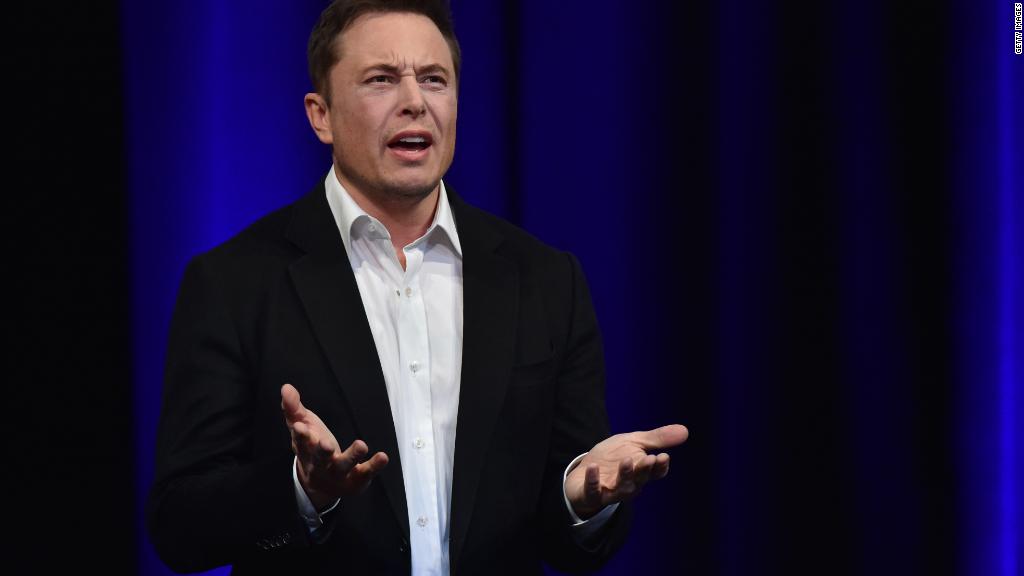
Elon Musk has ratcheted up his criticism of the media.
In a Twitter exchange on Saturday Musk, the CEO of Tesla and SpaceX, described newsrooms as "bleak." He accused NBC News reporter Ben Collins of "living in a bubble of self-righteous sanctimony" when Collins asked Musk if he'd ever spent time in a newsroom.
Joshua Topolsky, a veteran tech editor and founder of The Outline, an online publication, asked Musk: "Do you think it's in the interest of powerful people to A: support a free press that exposes their lies, or B: tear it down so their lies are easier to tell?" Topolsky wrote. "Now ask yourself why the polls would look bad."
Musk responded cryptically: "Who do you think *owns* the press? Hello."
He did not elaborate. A number of follow up questions were left unanswered.
On Sunday, Collins noted in a tweet that the comment had attracted a barrage of anti-Semitic responses. He called on Musk to condemn them.
Related: Elon Musk wants to rate journalists. He'd call his site 'Pravda'
Musk, whose business endeavors frequently receive positive coverage, raised eyebrows last week when he took to Twitter to criticize the press, accusing journalists of being motivated by advertising dollars and saying he wanted to launch a site called Pravda to rate the credibility of journalists, editors and publications.
Pravda, the Russian word for "truth," is also the name of a newspaper linked to the Communist Party in the Soviet Union.
Many on Twitter praised Musk's idea and joined him in criticizing the news media.
Others said the idea needed refinement.
Siva Vaidhyanathan, a media studies professor at the University of Virginia, told CNN such a service might might make sense if it employed a careful methodology and was overseen by an independent journalism foundation.
"It's not a crackpot idea," he said. "The question is why should Elon Musk be the one running it and how trustworthy would it be if he ran it."
Related: Musk says Tesla will fix Model 3 problems that sparked negative review
The ruminations come after coverage of Tesla (TSLA) for missing Model 3 production goals, losing top executives and clashing with the government over an Autopilot crash investigation.
Musk also pushed back against Reveal, a nonprofit news organization that published an investigative report about safety conditions and injury reporting methods at Tesla factories.
Musk claims the reports are "misleading."
Musk has also occasionally indicated he isn't attempting to discredit all media outlets.
"[P]lease stop assuming I'm against all journalists," he said in one tweet. "This is not true. Something needs to be done to improve public trust in media."
He also made a donation on Wednesday to PolitiFact, a fact-checking site owned by Poynter, a non-profit school for journalists.
Earlier in the day, Alan Boyle, an editor at GeekWire, wrote to Musk in a tweet.
"It's great that @elonmusk is interested in supporting reality checks amid the #fakenews crisis, but crowdsourcing may not be the best way to do it. Supporting orgs like @snopes and @PolitiFact would be a better way to go," Boyle said.
— CNN's Seth Fiegerman contributed to this report.


